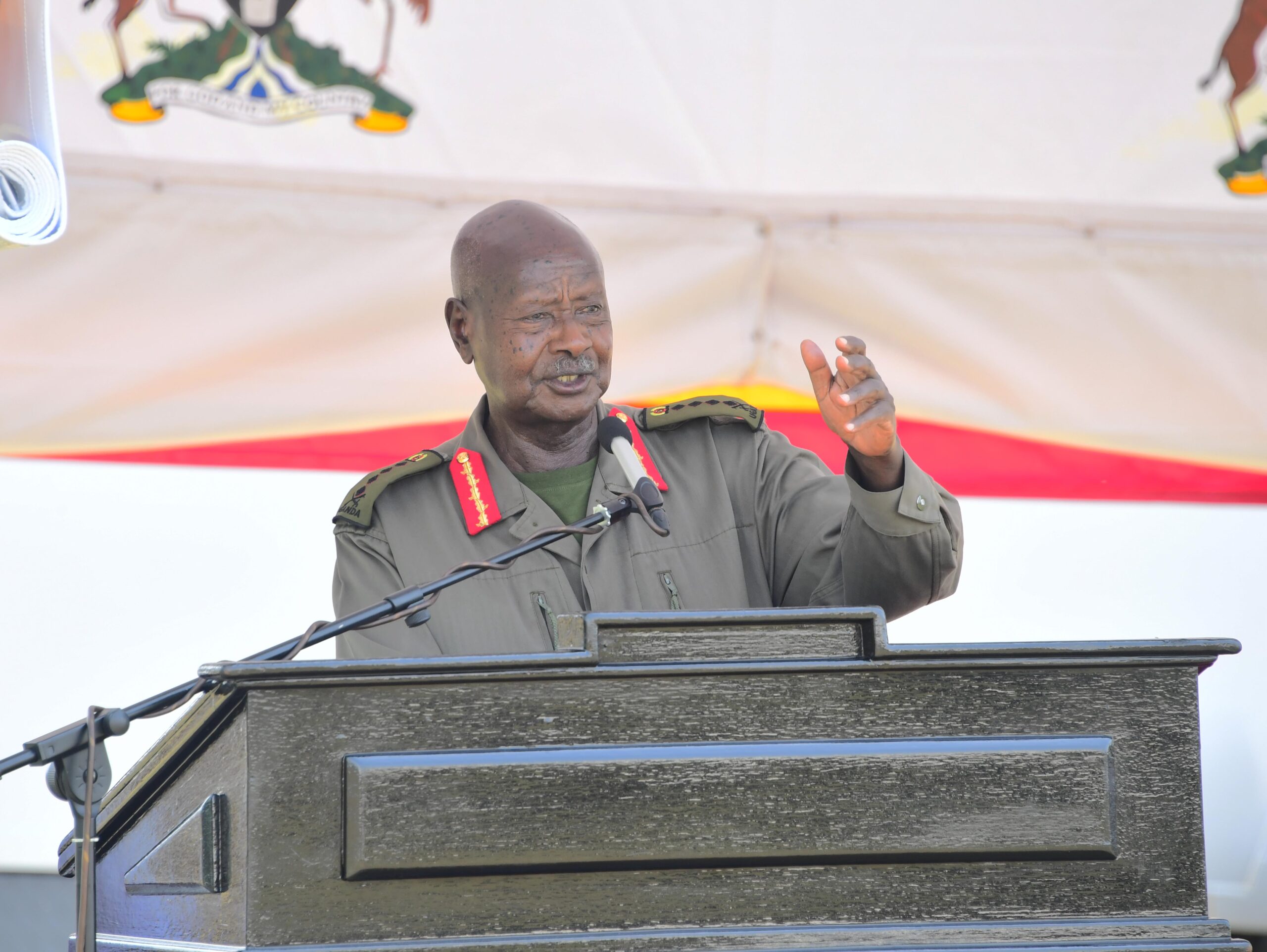Politics
President Museveni urges District leaders to prioritize National Interests
District leaders have been urged to prioritize the promotion of policies that serve the interests of the citizens, as it is crucial for the prosperity of Ugandans.
The call came from President Yoweri Kaguta Museveni, who explained that since gaining independence, Uganda has faced numerous challenges, many of which stem from leaders’ misdiagnosis of the issues affecting citizens.

President Museveni, addressing 472 district leaders at the conclusion of the Transformational Leadership Development Course at the National Leadership Institute (NALI) Kyankwanzi, stressed the need to focus on addressing the actual problems faced by the people.
He narrated that upon gaining independence in 1962, divergent views on federalism and identity politics emerged, contributing to societal divisions and hindering development efforts. He noted that such divisions persisted, leading to various challenges, including constitutional upheavals under Obote and conflicts during Amin’s regime.
The President outlined the four core principles of the National Resistance Movement (NRM)—Patriotism, Pan-Africanism, socio-economic transformation, and democracy—as essential pillars for fostering Ugandan prosperity. He stressed the importance of transcending tribal and religious identities in favour of national unity and development.
President Museveni highlighted the significance of expanding markets beyond Uganda’s borders, advocating for regional and continental integration to bolster economic growth. He cited success stories in sectors like agriculture, where surplus production necessitates access to external markets for sustainability.
In addressing socio-economic challenges, President Museveni explained the importance of wealth creation and education, urging leaders to prioritize initiatives that uplift communities economically.

He further advocated for a diversified agricultural approach, exemplified by the “four-acre-model,” coupled with industrialization and technological advancements to combat poverty effectively.
Regarding democracy, President Museveni reiterated the government’s commitment to fostering transparent governance and empowering local leaders through initiatives like setting up SACCOs to support their endeavors.
Rt. Hon. Robinah Nabbanja, the Prime Minister, highlighted the significance of the training in aligning local leaders with government programs and ideologies. She emphasized the need for continuous capacity-building to enhance leadership effectiveness.
In response to identified needs, Minister of Health, Dr. Jane Ruth Aceng, pledged to upgrade Kyankwanzi Health Center II to III to enhance healthcare access.
Similarly, Gen. Edward Katumba Wamala assured leaders of ongoing infrastructure development initiatives, including road rehabilitations and equipment provisions.

Brig. Gen. Charles Kisembo, the Director of NALI, commended the participants’ commitment to learning and expressed confidence in their enhanced capacity to drive socio-economic transformation.
Participants, represented by Mr. Wasswa Tadeo Zilitwawula, expressed gratitude for the training and pledged to leverage their newfound knowledge to serve their communities better. They also appealed to President Museveni for support in various areas, including the operationalization of Bunyoro University and enhancement of local leaders’ emoluments.
The event, attended by various dignitaries including Members of Parliament and Resident District Commissioners, underscored the collective commitment to advancing Uganda’s development agenda.

































